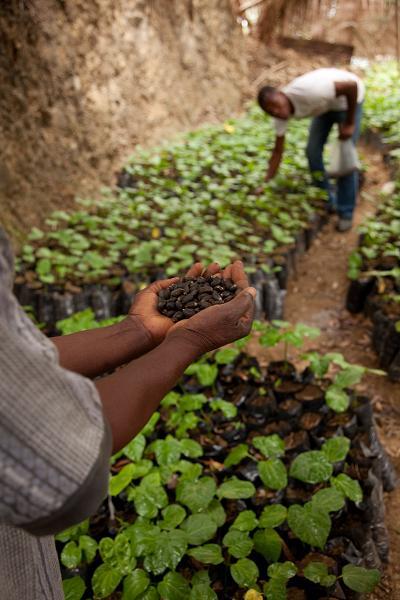Haitian farmers, California schools get help from Sirona Fuels



Photo: Sirona Cares Foundation
April 22, 2011
BY Luke Geiver
Sirona Fuels may not be producing biodiesel in Haiti yet, but the California-based company is certainly getting close. In 2009, Michelle Lacourciere, Director of the Sirona Cares Foundation, the nonprofit arm of Sirona Fuels, started working with Haitian farmers to develop jatropha. “The first year was spent building strong in-country relationships and running test nurseries,” Lacourciere said. Now, she works with more than a thousand farmers, and the nurseries, she said, “can’t produce enough seedlings” to keep up with the farmers. Every eight weeks or so, she makes the long flight from California to Haiti to check in with her farmers. And even now, after the devastating earthquake, she said the farmers are making great progress.
“Our 10 pilot farmers of the jatropha project planted the first seedlings about two weeks before the earthquake,” she said. After the disaster, she says eight out of 10 of the farmers lost everything, including their farms and homes. When she returned to Haiti, Lacourciere said she expected everything to be a total loss, but to her surprise, the farmers had already replanted 20,000 seedlings and were hoping to plant more. “By January, I had gone from 10 farmers to well over a thousand,” she said.
Advertisement
Although Lacourciere plans to convert the jatropha oil into biodiesel (she’s bringing a press down in June that she said will “blow the farmers socks off”), the farmers are planting the seedlings for a different reason. “All of our farmers are looking to improve their soil where their crops are,” or, she added, to prevent mudslides on the surrounding hills. “Haiti is 92 percent deforested so they are actually growing it to stabilize land and improve their soil more than any other reason.” They are also doing it, she said, because it is a partnership “and not because I pay them.”
Sirona Fuels has already signed an off-take agreement for any biodiesel fuel produced in the country that isn’t used, but Lacourciere said she doesn’t foresee any fuel leaving the country. The jatropha is mixed in with other crops like pumpkins, banana trees, avocado or beans. “We also like to intercrop Moringa because of its nutritional value,” she said. “Moringa flowers all year and it will keep bees in the field and bees will drive jatropha production up significantly.”
Advertisement
The Sirona Cares arm of the company isn’t only focused on sustainability efforts in Haiti. In California, the company has also created a program that will provide schools with funding. “We created a domestic program, the Sirona Cares for School Program, which is geared to put money into public schools systems.” Schools work to sign up businesses to donate their used cooking oil, and 20 percent of the profits made from selling biodiesel produced from the donated oil goes to the schools. “So, as the amount of fuel prices go up, we can give more money to the schools,” she said.
On Earth Day, the company will also provide a 25-cent-per-gallon discount to all Sirona biodiesel fuel sold, listing their fuel 25 cents cheaper than the price of diesel. “We are very much hoping that a synergy will be created where the customers will become aware of the fact that we will support their local schools, and that by getting the restaurants involved will help us fund the schools.”
Upcoming Events





